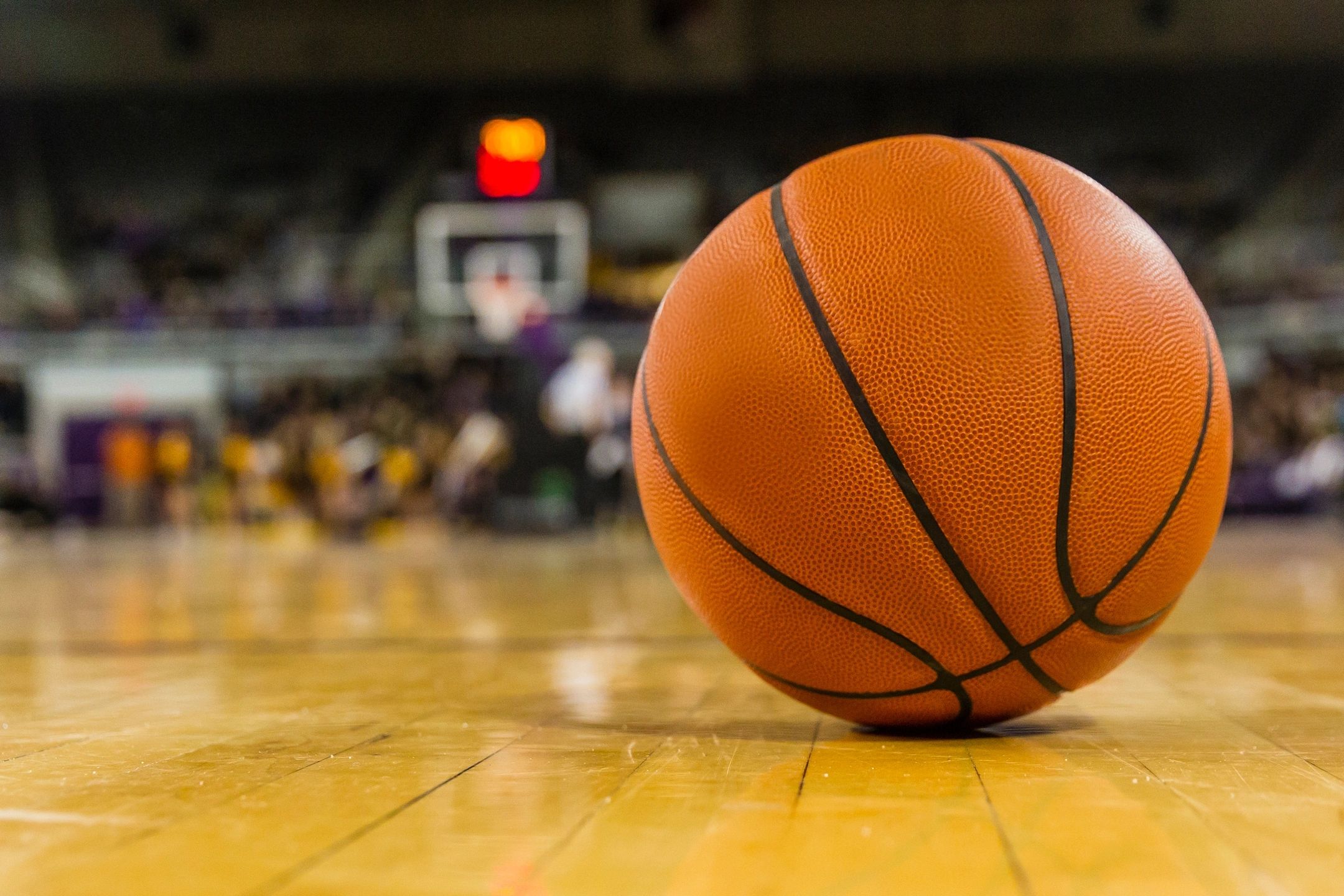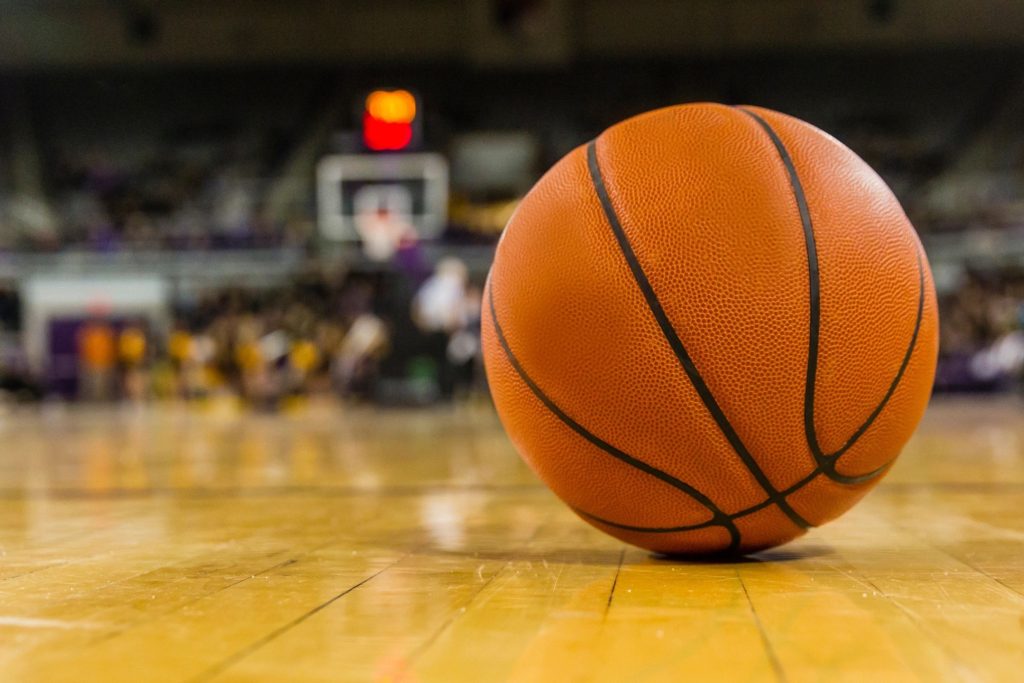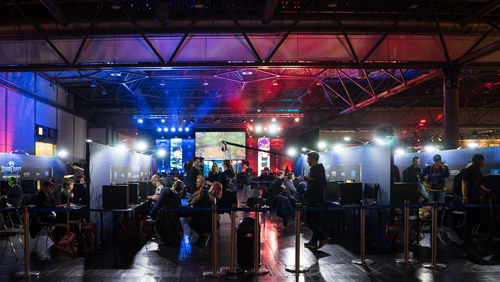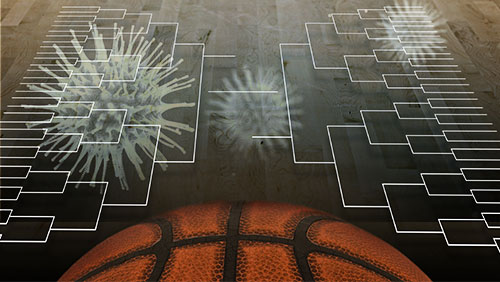Vice Chairman, International Gaming Standards Association
The post Earle Hall appeared first on GGB Magazine.
Vice Chairman, International Gaming Standards Association
The post Earle Hall appeared first on GGB Magazine.

Macau casinos’ operations may slowly be getting back to normal but their financial performance is expected to be anything but normal for the foreseeable future.
On Thursday, Macau’s Gaming Inspection and Coordination Bureau (DICJ) announced that around 5,400 casino gaming tables – representing 80% of total market capacity – will be operational as of Friday. That’s up from just 46% a little over one week ago, following last month’s reopening of casinos after the mandatory 15-day COVID-19 coronavirus-related shutdown.
Despite the positive momentum, the gaming tables are still operating under the new restrictions aimed at minimizing further viral spread, and analysts expect March casino gaming revenue could fall as much as 80% year-on-year based on the sector’s performance through the first half of the month. Macau’s casino gaming revenue fell 88% year-on-year to MOP3.1b in February, the largest drop in the market’s history.
On Thursday, Macau’s Executive Council projected that the local government’s share of casino gaming revenue could total MOP130b (US$16.26b) this year, roughly half the sum the government had forecast in its 2020 budget before the COVID-19 crisis began, although still a modest increase from 2019’s MOP112.7b figure.
This week is a recap of Grindstone’s victory in the March 17, 1996 Louisiana Derby (G3) at Fair Grounds. The recap, written by the late Bob Fortus, ran in the March 24, 1996 magazine issue. It carried the headline “What a Grind.”
Horsemen at Tampa Bay Downs and Oaklawn Park are thankful those tracks have continued to race amid the COVID-19 crisis.
The Hong Kong Jockey Club has unveiled a top-notch slate of international entries for its April 26 Champions Day races—along with a caution that few, if any, may compete amid steadily evolving quarantine and travel regulations.
An online state lottery game violates the gaming compacts between Oklahoma and Native American tribes and should end the exclusivity fees tribes pay the state each year, an Oklahoma-based tribe said in a court filing.Legal, Oklahoma, Court, Agreement, Second chance drawing
A dream of a lifetime seemed to have come true last week for an elderly Massachusetts man when he received a call from someone who claimed to represent Publisher’s Clearing House.Legal, Massachusetts, Scam, Law Enforcement, Crime, Sweepstakes
Set to make her first start of the year, Stoneway Farm’s stakes-winning homebred Cofactor will headline a talented field of five in the $100,000 Cicada Stakes for 3-year-old fillies going six furlongs March 21 at Aqueduct Racetrack.
Airdrie Stud’s freshman sire had six juveniles sell for six-figure prices.
Leonard Green and Jonathan Green’s Another Miracle, a stakes-winning son of 2015 Triple Crown winner American Pharoah, returns to the turf to get his sophomore season started in the $75,000 Texas Glitter Stakes March 21 at Gulfstream Park.

In the fast moving world of gambling, sometimes you might miss news that could be important to you. To make sure you’re all caught up on gaming industry news, be it online or brick and mortar, we’re rounding up the some of the announcements and partnerships from the last week that you might have missed.
Salsa Technology soups up Game Aggregator Platform with Spadegaming titles
Salsa Technology has struck a deal with Spadegaming to integrate the game developer’s titles onto its Game Aggregator Platform (GAP). Dimitrios Malegkos, Sales Executive at Spadegaming, said “We strongly believe that our special themed content would be a great addition to Salsa’s Technology global platform.”
Hacksaw Gaming partner with GIG


Despite how anyone feels about sports betting at this juncture, the process of legalization has begun – and there’s likely no chance of stopping it. In May 2018, when the U.S. Supreme Court overturned the Professional and Amateur Sports Protection Act (PASPA), only Oregon, Nevada, Montana, and Delaware allowed legalized betting on sports. Now, in 2020, the number of states has grown from four to 21, with a promise of more to come.
Once upon a time, this was a topic people remained hushed about, but now, even NBA Commissioner Adam Silver has recognized that legalized sports betting is making its way “out of the underground and into the sunlight.”
This has paved the way for partnerships between the usual suspects: sports leagues, broadcasters, teams, casinos, and sportsbooks, which are being contracted almost as quickly as the legislation is being passed. Just to name a few, the MLB, NBA, NHL, NFL, and UFC have deals with MGM Resorts, FanDuel, DraftKings, FoxBet, William Hill, and Caesars. These lucrative deals entail profits, real-time data sharing, and branding in the form of logos and social media platform exposure.
But what does this mean for bettors?
First, sportsbooks will have immediate access to official league data in real-time. Amongst other benefits, this means better set lines/odds both before and during games, including in-play betting. Sportsbooks can also be more creative with the types of wagers they offer, providing bettors with a multitude of betting choices.
However, because of how quickly the legalization process is occurring, one can easily be overwhelmed by the ideas of partnerships and changes. What’s more, the heightened involvement of data can be daunting for those who want to bet, despite whether they are old pros or newbies.
There is a light in this confusing, data-driven world of sports betting, though.
One of the first companies to arrive on the scene is Sidelines, who knew right away that users needed an easy way to learn the market. Therefore, with the idea of providing users with a distinct advantage and an excellent value, Sidelines launched an odds comparison platform, bringing together market research and analysis for real-time odds comparisons across all legal U.S. sportsbooks.
This is only a small example of what legalized sports betting will bring.
The countless advantages to legalization and the process will only continue to gain traction within the community as this is further realized. As a result, both bettors and sports fans should keep themselves well informed on any changes and be prepared for the exciting prospects that will accompany it.

Playtech has stepped forward to deliver an update on their performance now that the economic impact of the COVID-19 coronavirus is becoming clear. With several verticals potentially facing impact, their reporting provides a pretty good picture of what the gambling industry is facing.
First, Playtech wanted to emphasize that regardless of what’s happening at the ground level, they are bearing for impact. “Playtech is working to protect its cash flow by pro-actively managing its capital expenditure and working capital as well as identifying opportunities for cost savings that will not impact the long-term success of the Company,” they noted.
With more people stuck at home than ever, online action is fairing pretty well. “Playtech’s Poker and Bingo businesses have seen increases in activity in recent days following the restrictions on physical movement put in place by various governments,” they note. But it might not last forever. “The Company believes there is a risk that player behaviour changes the longer the COVID19 situation continues.”
They caution that live casino and live dealer offerings may be disrupted as more governments opt for a “Shelter in Place” solution. This has been the case in atleast one country. “Playtech’s facility in the Philippines has been closed with traffic being redirected to other facilities. While its facilities in Riga and other locations currently remain operational, there is a risk that these facilities will need to close in the future.”

Nevada is essentially on a complete lockdown per an order by the state’s governor, Steve Sisolak, as a measure to prevent the coronavirus from spreading further. Other states have joined the initiative, as well, but California is more liberal in its approach, and casinos are making the decision whether or not to halt operations. Many have already agreed to a temporary suspension and, like Hard Rock Hotel & Casino Sacramento, are willing to support their employees despite the fact that they’re not generating any revenue. This appears to not be the case with Thunder Valley Casino Resort.
Hard Rock is going to continue to pay its employees their regular wages and health benefits while the doors remain closed. The casino’s president, Mark Birtha, explains, “We are focused on the wellbeing of our team and this means a continued commitment to payroll, benefits and appropriate health and welfare measures which are paramount. Our employees come from right here in the Sacramento area, with over 70% coming from Yuba and Sutter counties.”
However, Thunder Valley, which is owned and operated by the United Auburn Indian Community, is apparently taking a different approach. After employees are sent home when the venue closes tomorrow, they might not be able to count on any financial support from their employer – no salary, no health benefits. In fact, they could end up using their vacation days to cover the missed work if they want to continue to be paid, according to several employees.
A local Fox affiliate spoke with an employee, only identified as Shane, who gave his take on the situation. He explained, “I felt betrayed. I’ve been there for a long time. We’ve seen other casinos step up… They would front us another 80 additional hours, but those hours would have to be repaid when we return to work. We’ve been loyal to them for, most of us, 17 years. We’ve had offers from other casinos. Some have left, some went to Hard Rock. The people that stayed behind did so out of loyalty and this is how we’re getting treated in return.”

While perhaps still not accepted by everyone on a global level, eSports are gaining recognition as a valid sports activity. High schools and universities across the US, as well as in other countries, are adopting official eSports programs as extracurricular, points-earning activities, and competitions are becoming a regular part of the schedule, right alongside baseball, football and more. eSports is not exactly a new concept, but it’s one that is gaining tremendous ground in light of the current retreat of virtually all sports as a result of the coronavirus.
As proof of the success of eSports, one only needs to look to the HyperX Esports Arena at the Luxor in Las Vegas. The multimillion-dollar facility is designed to host all kinds of events, but eSports was always a huge part of the development – it’s even in the name. Being able to put together massive video game competitions has proven to be a crowd-pleaser, but the games have the distinct advantage of being played over networks, making them easily transferable to a virtual world that doesn’t require players to share the same physical space.
As a result, even though some competitions have been canceled, the eSports community as a whole is able to press on as everything else shuts down because of COVID-19. This makes it the perfect alternative as other sports are temporarily out of commission, and the executive director of the Milken Institute’s Center for Regional Economics, Kevin Klowden, sees a lot of potential success for the eSports industry. He explains, “Esports has the potential to fill a programming gap through having a combination of established leagues, followings and infrastructure. In many ways, it will be able to implement the strategy that the NBA and others had contemplated; empty stadiums without fans, and broadcasting games regardless. Even though many Esports leagues have encouraged and developed live venues, they will be able to adapt and function without them, and provide a steady source of content and income even under the current restrictions.”
This assertion is already being supported by tangible evidence. For example, as was recently reported, Counter-Strike: Global Offensive (CS: GO), one of the first games to be seen in eSports competitions, has reached new levels of popularity. This week, it reached over 20 million concurrent users with 6.5 million active players on Steam, and this is only the beginning. The average number of CS: GO players on the platform now stands at over 580,000.

Entire gambling hubs like Macau and Las Vegas and all major sports activity have been shut down due to the coronavirus, leading to hundreds of millions of dollars in lost revenue. Bailouts are already in the works in the U.S., the U.K. and elsewhere, but some industries are concerned that it won’t be enough. Not everyone in the gaming space is expected to feel a massive blow to the gut from COVID-19, though, and Australia-based gaming equipment manufacturer Aristocrat says it’s ready to deal with the virus head-on.
Aristocrat prepared a statement (in pdf) yesterday that is designed to allay fears among investors and the gaming sector that it would be caught up in the revenue freefall hitting other companies. Submitted to the Australian Securities Exchange, the company’s notice recognizes that a softer market will undoubtedly cause a decline in revenue, but asserts that it has, through its business model and operational guidance, been prepared for a calamity such as the coronavirus.
The company explains, “The Group’s outstanding fundamentals continue to underpin our strategy and long-term confidence. Aristocrat has a conservatively geared balance sheet, with a net debt to EBITDA [earnings before interest, taxes, depreciation and amortization] ration of 1.4x (as at 30 September 2019). In addition, Aristocrat’s term loan facility is not due until October 2024 and is covenant lite, providing significant financial flexibility.”
This doesn’t mean that the slot machine manufacturer is taking the current health situation lightly. It has instituted travel bans and social distancing measures for employees across all of its operations, and most of its staff are now working remotely. According to the statement, of the roughly 6,400 employees in the company, 80% are now working from home.

Atari’s glory days, when the 2600 was the hottest video game console in the western world, are far behind them. As the company has stayed alive for decades by publishing the odd popular game here and there, the company announced in 2019 that it would shift to gambling. Now, we find out they want to “launch a casino using cryptocurrencies.”
In a March 10 press release, Atari announced three new initiatives: “A music game based on the catalogue of the world renowned artist AVICII [R.I.P.], an agreement to launch the Atari Token and a casino for crypto-currencies.”
The Atari Token will have an initial coin offering (ICO) starting this month, with private sales right up until September 30, 2020, when a public sale will be offered. The plan is to then use that token as a currency for their online casino, which should launch around that date.
The details of the casino website itself are pretty general at this point. They wrote:

Not surprisingly, sports wagering revenue in the state of Mississippi declined in February, falling 25% year over year. It also fell by 54.4% from the previous month. This according to figures released by the Mississippi Gaming Commission (MGC).
Revenue decreased from $2.8 million in February 2019 to 2.1 million this past month. The month over month decrease in revenue was $4.6 million.
Coastal casinos remained the primary source of sports betting revenue for the month, ammounting to $955,000, down 31.5% from 2019. This came as a result of some bad breaks in the action, as consumer spending increased 54.1% to $25.5 million.
Central casinos saw a 21.6% decline in income year over year, falling to $619,000. Player wagers increased there as well by 7.5%, coming in at $4.3 million.

With the killing of March Madness just days before it was set to begin, college basketball fans were suddenly left with a huge void and an uncertainty over how to get their fix. The coronavirus forced March Madness to be dubbed March Sadness, but there’s a little bit of relief in sight for those left unfulfilled. Enter simulated March Madness competitions that are even offering prizes to ease the sting.
One of these competitions is being operated using College Hoops 2K from Electronic Arts. Even though the game was discontinued a decade ago, it’s still better than nothing, given the circumstances, and revives analytics, random number generators and expert opinions to help fans get over the loss of the real thing. Real-game simulations are included (but based on the older data) and the contest also provides other aspects, such as articles and game recaps, as if the action never missed a beat.
Fanvest Wagering Exchange, a fantasy sports startup, has gotten in on the fun, also, offering a simulated beta March Madness Portfolio Challenge. This platform allows users to buy teams at the beginning of each round using “Fanbucks” for the free-to-enter competition. Free doesn’t mean the simulated March Madness tournament isn’t without perks, though, and the users who log the best total gain by the end of the series are eligible to receive cash prizes. There isn’t a lot at stake – the top winner will score just $100 – but it’s still better than sitting at home watching daytime talk shows. John Culver, the co-founder and CEO of Fanvest, is excited about the alternative and asserts, “By innovating and being dynamic, we feel we’re better positioned than traditional sportsbooks.”
There’s also “Corona Madness.” Launched by Jackson Weimer and Josh Safran, it could be as close to the real thing as anyone could expect this year. Soliciting help from family members and friends, they’re running their own March Madness bracket based on the rankings from the regular season, and streaming games on eBaum’s World, a Twitch account that covers odd topics. They even set up a Selection Sunday list that, should the real March Madness have continued, defines which teams are matched up to start the final competition series. According to Safran, “We were looking around the internet and, ultimately, it comes down to no one has anything to do, so why not watch these kids play this video game?”

With the killing of March Madness just days before it was set to begin, college basketball fans were suddenly left with a huge void and an uncertainty over how to get their fix. The coronavirus forced March Madness to be dubbed March Sadness, but there’s a little bit of relief in sight for those left unfulfilled. Enter simulated March Madness competitions that are even offering prizes to ease the sting.
One of these competitions is being operated using College Hoops 2K from Electronic Arts. Even though the game was discontinued a decade ago, it’s still better than nothing, given the circumstances, and revives analytics, random number generators and expert opinions to help fans get over the loss of the real thing. Real-game simulations are included (but based on the older data) and the contest also provides other aspects, such as articles and game recaps, as if the action never missed a beat.
Fanvest Wagering Exchange, a fantasy sports startup, has gotten in on the fun, also, offering a simulated beta March Madness Portfolio Challenge. This platform allows users to buy teams at the beginning of each round using “Fanbucks” for the free-to-enter competition. Free doesn’t mean the simulated March Madness tournament isn’t without perks, though, and the users who log the best total gain by the end of the series are eligible to receive cash prizes. There isn’t a lot at stake – the top winner will score just $100 – but it’s still better than sitting at home watching daytime talk shows. John Culver, the co-founder and CEO of Fanvest, is excited about the alternative and asserts, “By innovating and being dynamic, we feel we’re better positioned than traditional sportsbooks.”
There’s also “Corona Madness.” Launched by Jackson Weimer and Josh Safran, it could be as close to the real thing as anyone could expect this year. Soliciting help from family members and friends, they’re running their own March Madness bracket based on the rankings from the regular season, and streaming games on eBaum’s World, a Twitch account that covers odd topics. They even set up a Selection Sunday list that, should the real March Madness have continued, defines which teams are matched up to start the final competition series. According to Safran, “We were looking around the internet and, ultimately, it comes down to no one has anything to do, so why not watch these kids play this video game?”